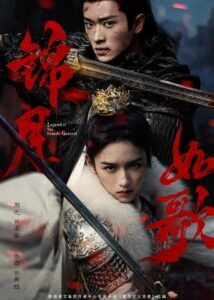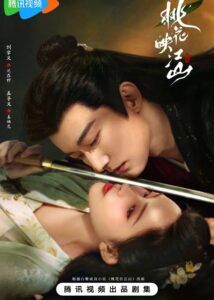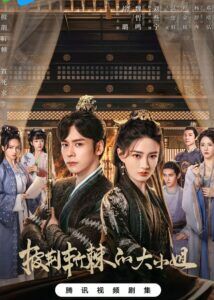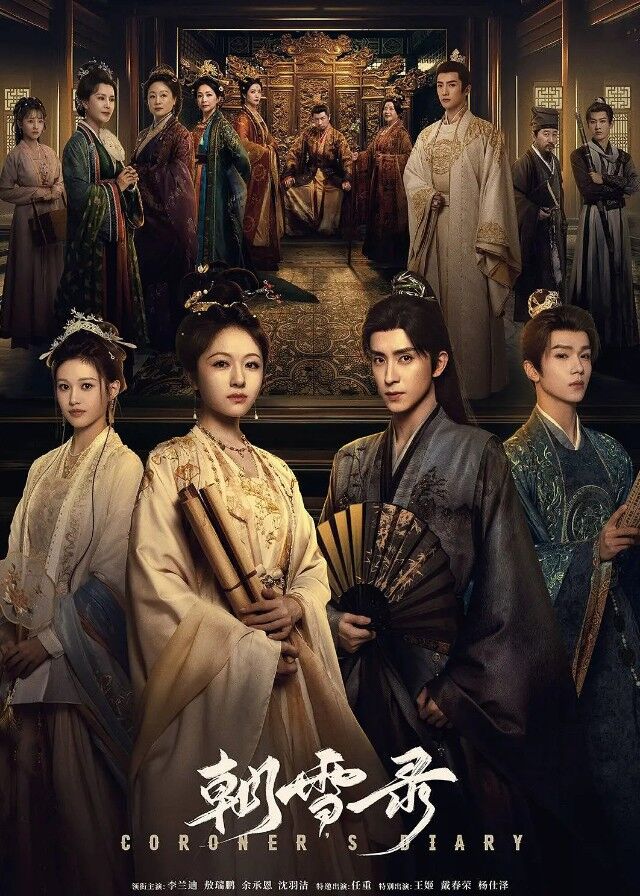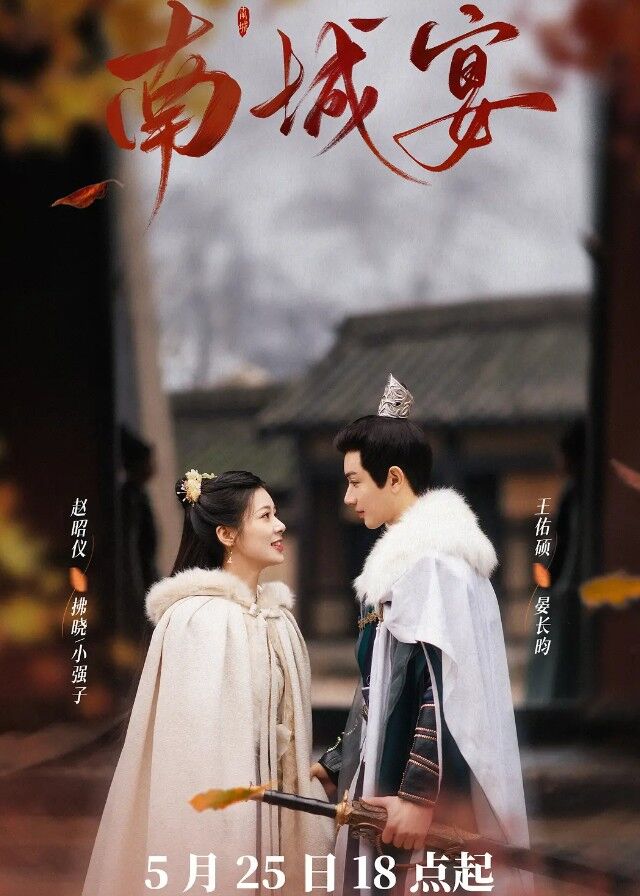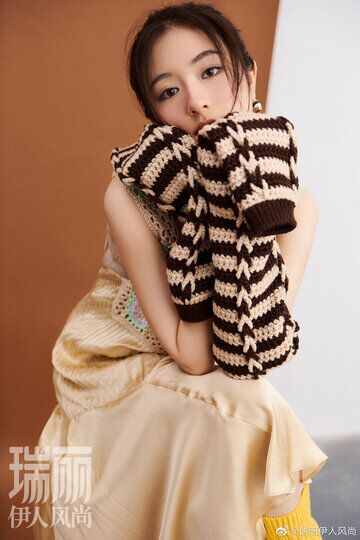Coroner's Diary Episode 32 Recap
> Coroner's Diary Recap
The Emperor decreed that Prince Rui's burial would take place the following morning outside the city, without a wake or mourning rites. He claimed Prince Rui died at the hands of nomadic enemies, and observing such ceremonies would be undignified. This absurd decree left many astonished.
Yan Chi pleaded with Shen Wan, whom he declared his chosen wife, to help him by performing an autopsy on his father, desperate to know if Prince Rui truly died by the nomadic enemy's hand. Shen Wan, acknowledging the tragic circumstances, promised to seek justice for Prince Rui and began the urgent examination, with only three hours to spare.
Shen Wan meticulously examined Prince Rui's body, noting seventeen wounds, including seven abrasions on his left shoulder, back, right wrist, and right calf, and four impact injuries on his chest and abdomen. The fatal wound was a sharp arrow piercing his heart. She learned Prince Rui had been attacked during a brief rest at a posthouse while on border patrol, finding horse feed husks in his hair.
His limbs showed groove-shaped blood stains, suggesting that attackers threw bran in his face to blind him before binding him. Given Prince Rui's lifelong dedication to martial arts, such a vicious method would be necessary to subdue him. Shen Wan and Yan Chi questioned why arrows were used if Prince Rui was already restrained; a rope to choke would have been simpler.
They suspected the use of a four-edged arrow, a unique weapon of the nomadic enemies, was a deliberate attempt to create the illusion that he was killed by them. The killers, they surmised, had intentionally taken the ropes that bound Prince Rui while leaving behind the distinctive arrow, making it seem like a provocation against the Shuoxi Army.
However, if it were truly the nomadic enemy, who often beheaded their victims, Prince Rui's body would not have been intact, leading Yan Chi to believe it was a framing by someone intimately familiar with nomadic weapons and Prince Rui's patrol routes—likely an insider from the Shuoxi Army. Their suspicions intensified after questioning Fan Xin, Prince Rui's personal guard, who confirmed no foreign traces were seen, and he arrived after the attackers had fled.
Shen Wan's pointed question about whether the nomadic enemy ever used "rope formations" surprised Fan Xin. Yan Chi then revealed that Prince Rui had ordered the Tianshu Camp, a specialized unit within the Shuoxi Army for assassinating enemy generals, to develop a "rope formation" based on the Great Zhou's meteor hammer, specifically to force the nomadic enemy into surrender. This secret formation was known only to Prince Rui and the Tianshu Camp.
This revelation led Yan Chi to the painful conclusion that a traitor within the Shuoxi Army was responsible for his father's death. Shen Wan swore to avenge Prince Rui alongside Yan Chi. Meanwhile, the Empress Dowager, despite her illness, insisted on seeing her son, Prince Rui. The Emperor rushed to stop her, claiming his actions were necessary for the stability of the nation and the smooth transfer of the Shuoxi Army's command.
The Empress Dowager bitterly rebuked him, reminding him of Prince Rui's unwavering loyalty and two decades guarding the border, yet the Emperor viewed him as a grave threat and even denied him a proper funeral. She questioned what kind of emperor or brother he was, expressing her despair at being unable to see her son one last time and even threatening to abdicate her position.
The Emperor, in turn, asked if her heart only held Prince Rui, reminding her that he too was her son. The deceased was identified as Song Xiwen, Prince Jin's personal guard, whose death in the Disgraced Prince's mansion while supposedly imprisoned raised many questions. While the Marquis of Zhongyong argued against reopening the case to maintain stability, Li Muyun of the Supreme Court insisted on a thorough investigation to uphold the court's reputation and ensure public trust.
The Emperor then tasked Prince Cheng, Yan Qi, to oversee the investigation of Song Xiwen's case, with the Supreme Court assisting. Having properly buried his father, Yan Chi returned to the capital sooner than expected, knowing it would ease the Emperor's mind. He confided in Shen Wan, asking if she would still marry him should he lose his official position and fail to inherit his princedom.
Shen Wan confidently replied that she could open a medical clinic and support him comfortably. She expressed her desire to marry without delay, wanting to seek the Empress Dowager's blessing. Together, they petitioned the grieving Empress Dowager, requesting permission for an early marriage during the mourning period to honor Prince Rui's last wish of seeing his son settled.
Though concerned about potential criticism and the simplicity of the ceremony, the Empress Dowager acquiesced upon learning it was Shen Wan's heartfelt desire, touched by her steadfastness. She vowed to select an auspicious date for their wedding. Simultaneously, Prince Cheng sent envoys to the Marquis of Zhongyong's Mansion, requesting to take Qin Xiang as his concubine. The Marquis vehemently objected, citing the Qin family's ancestral rule against legitimate daughters becoming concubines.
However, Prince Cheng's envoys countered that Qin Xiang had volunteered. To the dismay of her family, Qin Xiang boldly declared her willingness, admitting she had already been intimate with Prince Cheng and sought her family's blessing. Madam Feng, angered by Qin Xiang's disregard for family honor, especially with Qin Zhaoyu soon to marry the Crown Prince, questioned how this would reflect on the Empress, the Crown Prince, and their family.
Enraged, the Marquis disowned Qin Xiang and cast her out of the mansion. As she left, Qin Xiang vowed to remember the humiliation and return to exact her revenge when she rose to power. Meanwhile, the Ministry of War directly assumed control of the Shuoxi Army's command, reassigning Prince Rui's deputies. The soldiers, angered by their Chief General's unclear death, rebelled against the orders and were detained.
The Crown Prince and Prince Cheng took advantage of the chaos to install their own people. Qi Yu, a strategist under Prince Rui, visited Yan Chi and Shen Wan, bringing Prince Rui's treasured personal effects: a portrait of Yan Chi's mother, identical to one in his study, and Yan Chi's own blood-stained hair ribbon, which his grandmother had made for him at age eight, meticulously preserved by his father.
Yan Chi wept as he read his father's personal notes, which revealed Prince Rui's profound love and pride for his son, his regret over his wife's early passing, and his anguish over the difficult choices forced upon him by duty. Prince Rui's writings detailed Yan Chi's growth and triumphs, even his victory over Fan Xin, showing that he never neglected his son despite a public display of harshness to discipline him for a costly battle.
He also lamented being "trusted yet doubted, loyal yet slandered," indicating he was aware of the Emperor's suspicions but chose loyalty to the country above all else, regretting only his perceived failures to his mother, wife, and children. Yan Chi realized his father understood his actions were meant to protect him and the Shuoxi Army. The investigation into Song Xiwen's death continued.
The Crown Prince, anxious, expressed his fear to the Empress that Prince Cheng's investigation might expose her role in releasing Song Xiwen. The Empress calmly dismissed his worries, claiming the case had nothing to do with them. However, Prince Cheng reported to the Emperor that an attendant guarding Song Xiwen had confessed that Wan Xi, the Empress's personal attendant, was responsible for taking Song Xiwen away. The Emperor ordered Wan Xi's interrogation.
Before the interrogation, the Empress visited Wan Xi, promising to care for his family and telling him to "go with peace of mind," hinting at his pre-arranged fate. Wan Xi, seemingly resigned, thanked her. Yan Chi then questioned Qi Yu about any Tianshu Camp officers who rose without military merit, and Qi Yu named Jiang Heying, a former training officer now Chief Commander of Qianzhou, whom Prince Rui had highly recommended for his filial piety.
Yan Chi suspected Jiang Heying due to the assassination method's consistency with Tianshu Camp techniques, knowledge only privy to those involved in its combat formation development. While Qi Yu doubted Jiang Heying's treason, Shen Wan confirmed the autopsy findings. Yan Chi hypothesized that someone more powerful than Prince Rui, perhaps the Emperor or a future monarch, ordered Jiang Heying, believing they could offer protection and a better future.
He pointed to Prince Cheng, noting the Empress's family already commanded the Northern Palace Army, making the Shuoxi Army unnecessary for them. The Emperor's apparent favoring of Prince Cheng over the Crown Prince also suggested Jiang Heying would choose to align with the rising power. Jiang Heying's intimate knowledge of Prince Rui's skills, patrol routes, and even Yan Chi's whereabouts made him the perfect accomplice.
Yan Chi concluded that Prince Cheng was likely the mastermind behind the assassination attempts on both him and his father. Despite the potential danger, Yan Chi and Shen Wan resolved to proceed cautiously, focusing on protecting the Shuoxi Army's remaining strength, and Yan Chi instructed Qi Yu to advise the soldiers to lie low. Later, it was revealed that the Empress did not obstruct Prince Cheng from taking Wan Xi, a move interpreted as "cutting her losses."
Shen Wan concluded that Song Xiwen's death was indeed the Empress's doing, and Wan Xi's compliance indicated he was prepared to die, rendering Prince Cheng's efforts fruitless. Prince Cheng subjected Wan Xi to severe torture, but Li Muyun and Capital Prefect Zheng intervened, arguing against the brutality and unreliability of forced confessions, with Li Muyun warning of the need for an honest report to the Emperor if Wan Xi died.
Faced with Wan Xi's critical condition, Prince Cheng ordered him sent back to Fengyi Palace, leaving his fate to the Empress. Meanwhile, the Empress Dowager played Go with the Grand Princess and Prince Yan Ze. Shen Wan arrived to check on her, and the Empress Dowager, still grieving, expressed her weariness. Shen Wan and Yan Chi later sought the Empress Dowager's guidance on the Song Xiwen case, particularly Yan Chi's lingering belief in Prince Jin's innocence.
The Empress Dowager, acknowledging Prince Jin as a good son and brother, close to Yan Chi, promised to help. She revealed that Wan Xi had an adopted son in the Imperial Guard named Wang Han, whom he deeply trusted. Subsequently, Wang Han was seized by masked men. Terrified, Wang Han recognized a woman's voice and feared his captors were from the palace.
He desperately offered money and his position if they would spare him and his family, refusing to betray the Empress. As they prepared to bury him alive, one of the captors chillingly stated that the Empress had already decreed he should not survive. Wang Han, seizing an opportunity, escaped and screamed for help, alerting others that he was being targeted for assassination to ensure his silence.





